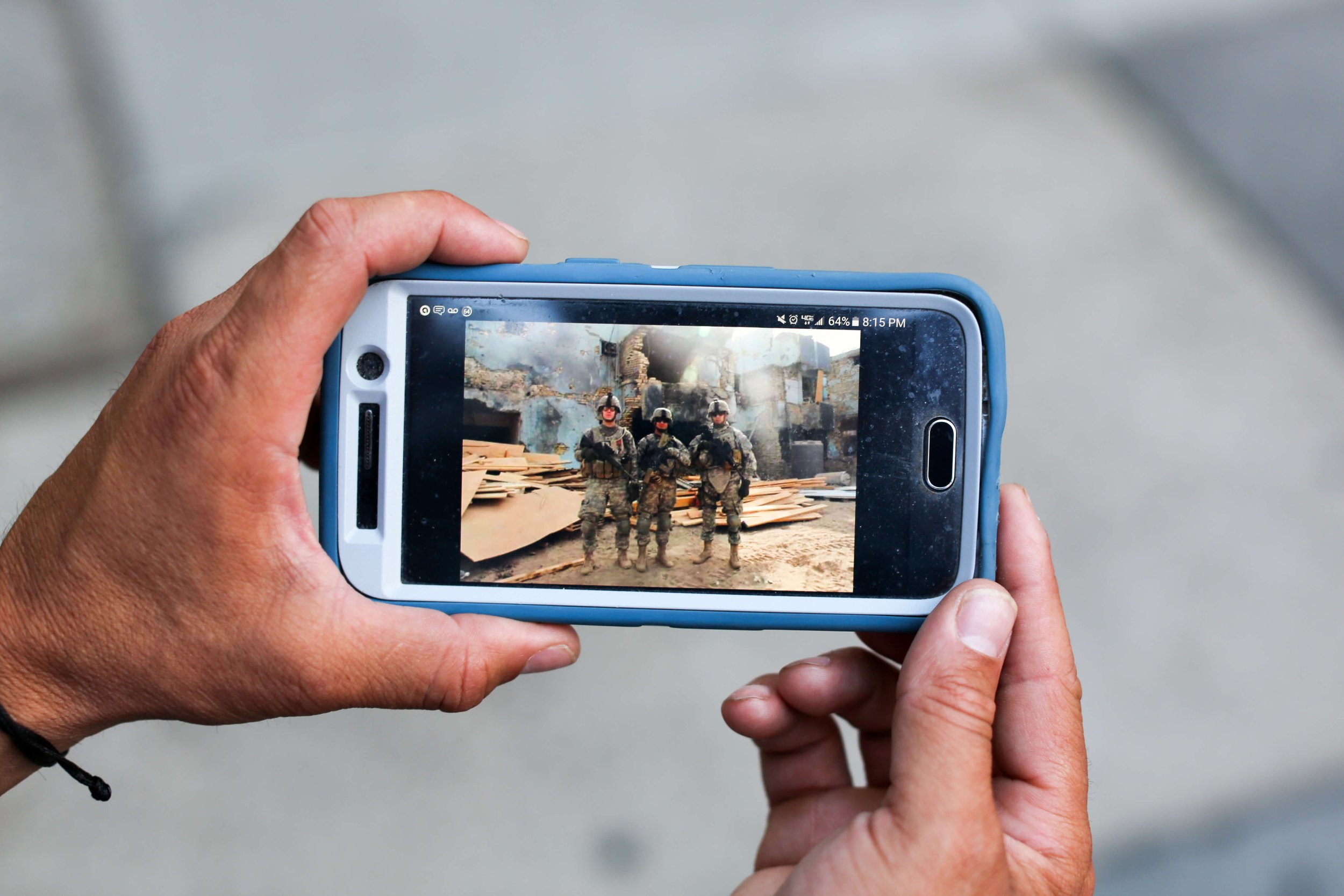invisible Wounds
Fo this series, I partnered with Headstrong Project to tell the stories of American veterans from the wars in Iraq and Afghanistan. As with any group, there will be a wide range of viewpoints and experiences. There are often conflicting feelings: patriotism, disillusionment, pride, regret, gratitude, and grief. There is a common love for America, yet differing ideas about what exactly that means. Many of these stories will include PTSD, but the hardships of returning veterans are far too nuanced for a single diagnosis. And it can be inappropriate to use PTSD as a catch-all for those hardships. So we’ve chosen to title the series ‘Invisible Wounds.’ I know that many people have strong opinions about America’s involvement in Iraq and Afghanistan. But as we meet the individuals behind the uniforms, and seek to understand their stories, I’m hoping we can momentarily put those politics aside. This is a great group of people who served and sacrificed at the request of their country. And I’m very thankful that they’ve volunteered to share their stories.

“I understand that it’s not sexy to talk about treatment. But the maddening thing about PTSD is that it’s completely fucking fixable.”
“We met in college. Mark had long hair and a beard. He was class president so there were posters of him hanging up around campus.”
“I don’t feel good about it. It will bother me for the rest of my life and honestly I’m happy about that.”
“I don’t think it’s possible to be a medic in a conflict zone and not have something stay with you.”
“I was inside an armored carrier with my platoon commander. He tried to open a pressurized fuel container and it sprayed across the vehicle and hit a camping stove that he was using to make hot chocolate.”
“Everyone who comes back from deployment fills out a form. It’s a standard psychological evaluation.”
“I was in charge of 250 Marines during my second deployment. We were assigned to a district called Sangin.”
“We got called out one day to assist a fuel convoy that was being pinned down by gunfire.”
“I didn’t fit in too well in training. I came back from drinking one night and I was three minutes after curfew.”
“My father was a platoon sergeant in the Pennsylvania National Guard. But nobody ever thought I’d join the military.”












